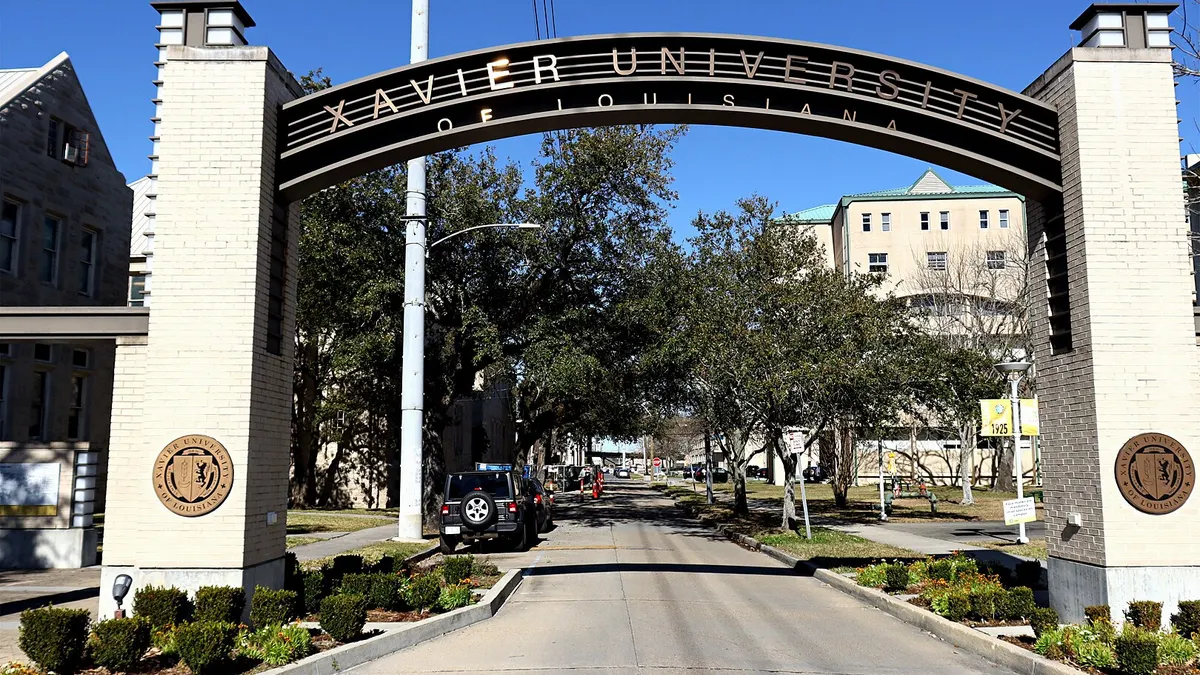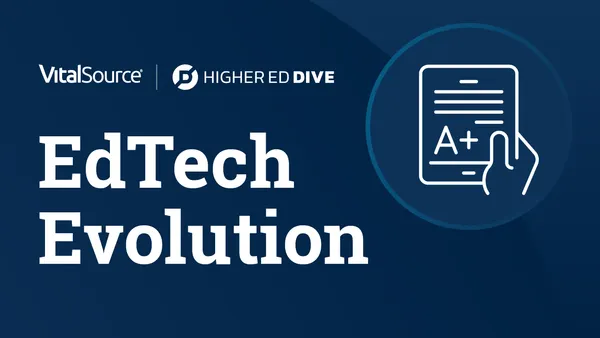California's newest public college is beginning an experiment this fall that could change how higher education serves a coveted class of students: working adults without degrees.
Called Calbright, the free online community college is starting slow, offering noncredit classes with curriculum designed to teach skills requested by area companies.
But less than a month before it is expected to open, Calbright is raising more questions than it has answered. Those include how it will mesh with California's existing 114 community colleges, the extent to which it will be able to reach the underserved students it is targeting and whether it will impact online education for working adults beyond the state.
Calbright has the blessing of California's legislature, which freed up $100 million in funds to launch plus another $20 million earmarked for annual expenses, according to media reports. For its president and CEO, the university selected Heather Hiles, who has been a proponent of technology and access in higher ed.
It will offer three academic pathways — medical coding, information technology support and cybersecurity — the school's communications director, Taylor Huckaby, told Education Dive in an email. So far Calbright has hired about a dozen part-time professors, though none are full-time.
Calbright expects about 400 students in its first class, but by late August none were enrolled. The cohort will be chosen through targeted marketing, business partnerships and union referrals, as well as direct applications. "This is a beta cohort that we'll be closely monitoring and getting feedback from prior to a wider rollout," he said.
The school will eventually scale to have "tens of thousands" of students moving through its pathways at their own pace, rather than following a traditional semester schedule, he said.
Calbright's educational model is different from that of other online colleges targeting adult learners, such as Western Governors University, where students take classes that count toward full degrees. Students at Calbright are expected to take only the number of classes needed to gain their desired skills or certifications.
Unlike traditional community colleges, Calbright will offer mobile learning designed to let students "digest the curriculum" in 30-minute intervals, whether they're commuting with their smartphones or using their home computers, Huckaby said.
Although it will open without accreditation, the college is pursuing it. It has until April 2025 to become fully accredited.
Without accreditation, its students can't transfer credits to other schools, Huckaby said, adding that Calbright is making sure prospective students are aware of the accreditation situation.
Reaching working adults
The school's "ambitious timeline" and desire to reach adult learners that aren't particularly well-served by current college programs could become a blueprint for lifelong learning, said Russ Poulin, executive director of the WICHE Cooperative for Educational Technologies.
Phil Hill, co-founder of edtech consultancy MindWires, expects Calbright will need time to reach scale. "Best case, it'll take five to 10 years before it gets to 30,000-plus students," he said. Hill consults with some of the state's existing community colleges.
An intentionally slow start could be a good thing, said Jennifer Mathes, interim CEO of the Online Learning Consortium. "They're not trying to be everything to everyone right off the bat," she said. "If they stay nimble and continue to focus on high-need areas, they will really provide a great service."
Although the school hasn't announced any business partnerships, Mathes doesn't expect it will struggle to attract them. (On its website, Calbright lists four foundations that have helped fund its launch, including The Walmart Foundation.)
However, Calbright's long-term success depends in large part on how willing employers are to validate potential employees' skills-based learning. Many companies remain focused on degrees, but some, such as IBM, have transitioned to valuing skills first, said Marie Cini, the president of the Council for Adult and Experiential Learning.
Mathes said certain fields, such as information technology, are more receptive to credentials. While she said the idea of credentials will continue to grow, she doesn't expect to see "major shifts" from companies valuing credentials "for a long time."
More states go online
Calbright can also learn from earlier moves by states to offer public education exclusively online. Both Hill and Poulin point to the University of Florida Online (UF Online) as the most successful example of such an attempt.
Although it is oriented around providing low-cost, online bachelor's degrees, UF Online has some similarities to Calbright's plan to serve in-state students, said Evangeline Cummings, assistant provost and director of UF Online.
UF Online, too, was created quickly, starting classes just six months after getting state approval in 2013. Florida authorized $35 million over the school's first five years, and it kicks in $5 million annually to subsidize the school.
It also started small, though only after shelving the original enrollment projections from its online program manager soon after launching to focus on state residents, said Cummings, who joined UF Online in 2015. UF Online now serves about 4,000 students and has graduated 2,000 students, she said.
Cummings recommends "caution with enrollment" for online public colleges. "It's not fair to expect overnight success. Now, we set goals we know we can achieve with our values and reputation intact."
UF Online and Calbright are both part of the growing trend of states dedicating public online colleges for adult learners. That group includes Penn State World Campus and the University of Maryland University College, as well as newcomers like Purdue University Global. Other states including New York, Massachusetts and Missouri have said they plan to add or grow their current offerings.
But with a focus more on skills than on degrees, Calbright seems satisfied to take its time to find its footing in this changing market.
"We aren't going to be a [Western Governors or Arizona State University] out of the gate," Huckaby said. "Putting our unique model into practice will take some time and we want to do it right rather than recklessly."
Clarification: This article has been updated to clarify the University of Florida Online's enrollment objectives.


















